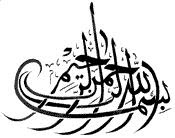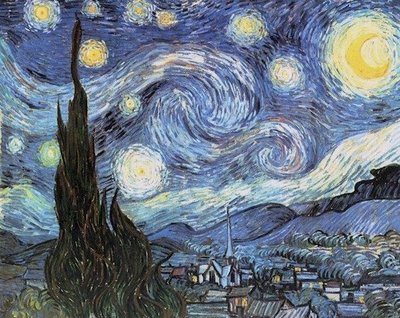I have also decided to keep the Malay/Indonesian words of the main title “Berpetualang ke Aceh” which to me carries a certain significance that can’t be properly translated to English… I mean “The trip to Aceh” or “The Aceh chronicles” doesn’t quite cut it… Instead, the sub-title “Mencari Diri dan Erti”, translated to “The search for self and meaning” should be apt enough to convey the raison d’etre behind the book’s name, bearing in mind this is actually the first of a trilogy of books under the name “Berpetualang ke Aceh”.
Thus in keeping with the spirit, the word “Berpetualang” in the first chapter should also be preserved, hence the opening story below. Go through and you’ll find how the word can resonate far beyond mere translations, making the title below fits very well into the whole reason for the quest… Read on!
WHY BERPETUALANG?
In the name of Allah, Most Gracious, Most Merciful,
Praise be to Allah, the Cherisher and Sustainer of the worlds;
Most Gracious, Most Merciful;
Master of the Day of Judgment.
Thee do we worship, and Thine aid we seek.
Show us the straight way;
The way of those on whom Thou hast bestowed Thy Grace, those whose (portion) is not wrath, and who go not astray.
(Al-Fatihah – The Opening Verses of the Quran)
Four o’clock in the wee hours. Rasyid found it really hard to snooze. Felt like ages changing sides and contorting his body to all manners of shape and size just to get comfortable enough for a wink but nothing seemed to work. Rather than continuing this fruitless charade, might as well do something useful. He got up and went to the living room, then took out the Compaq Presario laptop which haven’t been touched for quite a while.
“Maybe I have to start writing again,” his heart whispered.
The guy began to recall his trip to Aceh 2 years ago, when the land also known as The Verandah of Mecca was under emergency rule by the military… A trip that must be made in order to find the answers to some questions that have been plaguing his mind since as long as he can remember.
There’s no denying it. Of late, Rasyid always have Aceh on his mind. If the end of 2004 have seen the world in shock after the Tsunami of 26 December took some 200,000 lives in the war-stricken region, lately the 4 million remaining population there begin to see some glimmer of hope.
As it turns out, there is a silver lining behind the clouds. Behind all the casualties and infrastructures destroyed, the Indonesian Republic government and the Free Aceh Movement (GAM. For the Malay equivalent – Gerakan Aceh Merdeka) were pushed to the round-table. And so the most solid treaty ever between the two since Indonesia gained independence from the Dutch colonial powers in 1945 were struck. The visible result, GAM is willing to surrender the guns and weapons they’ve held for years while the Indonesia military began to eliminate their presence at the region in stages.
Rasyid who have been practically unemployed the last 4 years soon remembered his promise to write a book about Aceh. The work will contain pages of old sunken tales interwoven with the history of The Verandah of Mecca and its relation with the Malay Archipelago along with his travelling experience and relevant events.
Actually Rasyid already had all the relevant materials compiled for some time; in fact he already started writing a year ago. The title of the book has also long been decided on, a title which appeared at heart when he first stepped at the Aceh-North Sumatera border. However, personal problems and many other worries got in the way until it all got too much. The seemingly never ending trials and tribulations he had to face in life made him felt so desolate as if the whole world itself conspired to bring him down. And so he walked broken-hearted and lost his way.
Rasyid switched on the laptop and searched for the folder “Petualang”. Thank God, as soon as he saw the book cover’s design made a year ago using the Adobe Photoshop software at his adopted father Pak Syed’s office, a new resolution to continue his long-forgotten writing attempt blossomed. And so his finger danced as the story unfolded to the alluring background of the traditional music called Asyik whispering mystically from his computer.
“Berpetualang ke Aceh? Sounds very disturbing,” said a friend Asri upon hearing the title of the book. “Why ‘berpetualang’? Doesn’t it sound evil?”
As it turns out, the word has such a negative connotation in Malaysia but in Indonesia, it carries a totally different meaning, a positively adventurous one too but that is another story… For the record, Aceh is considered to be in Indonesia. But bear in mind some Acehnese would beg to differ as they considered theirs a free country which happens to be illegally ran by the Indonesians. So there…
“I thought ‘Petualang’ applies only to those who disturb the peace? Those who bring trouble and destruction? Aren’t you worried what people would say? This sound rather like the communist” the friend, a native of Lenggong in Perak badgered… Malaysians in general have very bad impression of the Communist because of the disturbances they caused all over the country in the 60s to early 70s. And so he suggested the title changed to “Berkelana ke Aceh (Adventure to Aceh)” or “Mengembara ke Aceh (Travels to Aceh)”. Or maybe “Jejak-jejak Aceh (The Aceh tracks)” considering the story do cover actual travelling experiences coupled with history and tales.
Rasyid thought for a moment. Fair enough… No harm done using these titles. Doesn’t sound so bad either. It’s just that the titles are not strong enough to convey the explicit and implicit message of the story… They also sound like something out of a travel brochure when in fact, the stories included does carry with it a hint of rebelliousness (which the word “Petualang” does imply)… Some sort of struggle that needs to be made public. So he explained to Asri but the friend seemed rather perplexed!
“Don’t be shocked!” Rasyid tried to smoothen things out. “The struggle and rebellion I meant is more on the inside, a spiritual process to understand the true Self. Anyway the world “petualang” does have a positive and healthy spin, so much so it can represent the struggle to make the truth prevail over the wrongs.
“Here, look at this…” he continued while shoving an article titled “Music Tutur dan Futtuwah Aceh (Music, speech and brotherhood in Aceh)” by Otto Syamsuddin Ishak in the weekly Indonesian magazine Tempo, 12-18 July 2004.
Hikayat pra-kolonial lazimnya memuat petualangan anak raja budiman dalam meudagang (menuntut ilmu) hingga mendapatkan pengalaman sufistik, sebelum petualangan meraih kembali takhtanya. Banta Beuransah berada dalam petualangannya memasuki sebuah dunia aneka hayati yang penuh makna simbolis hingga terjelaskan selepas seorang aulia hadir. Dalam hikayat lain, Malem Diwa mengalami pengalaman sufistik. Dalam petualangannya untuk menolong para putri, ia selalu mengendarai Buraq, kenderaan Nabi Muhammad SAW saat berisra’-mikraj.
Loosely translated – The pre-colonial tales usually include the petualangan (in this context, the travels) of a noble prince in learning the lessons of life until he achieved the necessary Sufistic or spiritual experience (most probably gnosis – the ‘merging’ with the source of all being) before he proceeds for petualangan (in this context, the mission) to gain back his throne. Banta Beuransah (an Acehnese folk hero) was in petualangan (travels) entering a colourful world of multi-delights full of symbolism (in an alternate universe? This is common in Malay folklore) until everything is explained through the presence of a saint. In another tale, Malem Diwa (another folk hero) had a Sufistic experience. In his petualangan (travels) to help the princess (he actually married three!), he often rode the Buraq, a kind of beast slightly resembling a horse, perhaps the Pegasus said to be the Prophet Muhammad’s vehicle in his Isra’ Mikhraj (the night journey where he went from Mecca to Jerusalem before climbing up the seven heavens and above in very small space of time).
“So what’s the problem with “Berpetualang ke Aceh?” Rasyid asked. Enough said…









